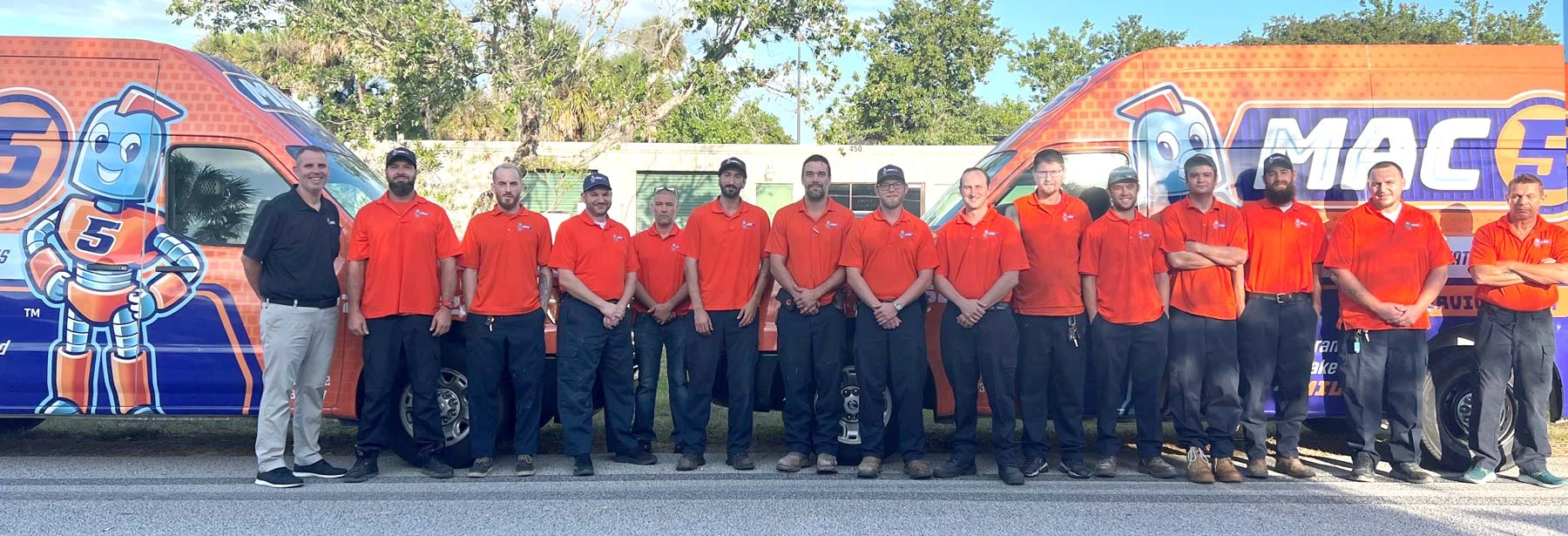Everything you need to know about refrigerants and how they work
A lot of people enjoy the comforts of an air-conditioned home, but not many know how their trusty AC works.
How exactly does an air conditioning unit turn the air in your home cold? Air conditioners are made up of several components that work together, but the secret is in the refrigerant, or what many people refer to as Freon. You may have heard of Freon many times before since it is present in our homes’ refrigerators and air conditioners.
What exactly is Freon? How does it work, and how does it cool our homes?
What is Freon?
For many years, people have been using the name Freon interchangeably with any refrigerant. To this day, people still refer to all refrigerants as Freon even though a lot of modern air conditioners already use other types of refrigerants.
Contrary to what many may think, Freon is not the common name of a gas. It is a registered trademark under the company Dupont. The brand name Freon pertains to a group of gas or liquid products mostly used as refrigerants.
In the 1930s, General Motors teamed up with Dupont to refine the existing Chlorofluorocarbons in the market. At that time, the only refrigerants available were ammonia, sulfur dioxide, and methyl chloride, which were both harmful to human health and highly flammable.
What they came up with was Freon-12, which is a safer, more stable, and non-combustible alternative. At that time, the effectiveness of Freon as well as its higher safety to humans made it incredibly successful.
Freon Phase-out
Because CFCs were safer and nonflammable, they became the standard refrigerant in millions of American homes for decades. It took a long time for scientists to discover the larger threat Freon posed to the world: CFCs were discovered to be a cause of ozone layer depletion.
In 1987, The Montreal Protocol was signed by 180 countries, agreeing to phase CFCs and HCFCs out of production.
As of 2020, Freon can no longer be produced or imported into America. For those who still use older systems that need Freon, they can only acquire the refrigerant from licensed technicians, and they can only use whatever stock is left in the country before it all runs out.
Nowadays, only older AC models still use the older types of Freon. Most air conditioners now use safer refrigerants like Norflurane (R-134A), Puron/Suva (R-410A), R-404A, and R-407C. However, these refrigerants are still highly regulated and are still subject to phase-outs as scientists continue looking for the safest way we can cool our homes.
How do refrigerants work in an AC system?
Refrigerants are essential in the air conditioner’s cooling process. They can change from one state to another over and over again, which results in cool air for your home.
First, the low-pressure cool refrigerant gas enters the compressor. As it enters the compressor, the gas becomes highly pressurized and superheated.
Afterward, the high-pressure gas travels through the air conditioner’s condenser coils, lowering its temperature and putting it in a cool high-pressure liquid state.
The liquid then travels to an expansion valve, where it is directed to the evaporator. As it travels to the evaporator, it becomes a low-pressure, low-temperature liquid. When the liquid reaches the evaporator, the liquid absorbs the heat of the room, causing it to evaporate. The resulting vapor then takes away the heat, allowing your air conditioner to cool down your home.
How do I know what refrigerant my AC uses?
The very first way to find out what refrigerant your air conditioner uses is your unit’s age. If you bought your AC later than 2015, your air conditioner no longer uses R-22, which is one of the more common types of Freon that’s already undergoing phase-out.
You can also check the data plate located on your air conditioner’s outside unit. If you see R-22 or R22 on the plate, your AC still uses Freon. If it says R-410A or any of the other newer refrigerants, your air conditioner is a more modern unit.
Finally, if you’re still unsure, you can always call air conditioning maintenance to find out for you. Skilled technicians can also check if you have any refrigerant problems that need to be addressed.
Can the refrigerants in my home AC run out?
Although refrigerants are meant to stay within your air conditioner for its entire lifespan, it’s unavoidable to experience refrigerant loss one way or another. The most common way for your air conditioner to lose refrigerant is through a leak, which can be caused by a variety of things.
- Physical damage
If an object or debris hits your air conditioner, its components inside might get damaged, leading to a leak.
- Metal Erosion
Formic acid or formaldehyde may cause erosion inside your AC. Small holes can form as the acid erodes the metal, causing a refrigerant leak. These holes can cause what a lot of technicians refer to as “champagne leaks,” due to the refrigerant bubbling out of the small holes.
- Factory defects
There’s no good way to know if your new air conditioner has defects that can lead to a refrigerant leak. Luckily, manufacturers offer a warranty, which will cover the replacement of a faulty machine.
- Improper installation
A refrigerant leak can happen if your air conditioner is installed poorly. When you purchase an air conditioner, make sure to hire expert technicians to do air conditioning installation for you.
- Regular wear and tear
Parts of your air conditioner will just degrade over time. If you have an older unit, this can be more of a concern especially since your outside unit is exposed to the elements.
How do you know if your AC needs a refrigerant refill?
Since refrigerants are meant to cool your home, the very first symptom to look out for is loss of cooling ability. If your AC has been running continuously but warm air is blowing out, you may have a refrigerant leak. It’s worth noting that refrigerant loss is not the only reason behind air conditioners not blowing cool air, so make sure to check other symptoms as well to find out what the issue is.
Another problem you may face if your air conditioner has a refrigerant leak is a spike in your utility bills. This is a sign that your air conditioner is working twice as hard to cool your home.
You can also observe your air conditioner more closely for other signs of leaks. You may hear a persistent hissing or bubbling sound coming from the inside, which is a sign that the refrigerant is leaking and making contact with the coils or other components of the AC.
You can also see if your AC’s inner components are frozen. Frost, ice, or signs of melted ice around the unit are some of the most common signs of a refrigerant leak. To avoid further damage to your unit, turn off your AC right away when you see this happen.
If you suspect that your air conditioner is leaking refrigerant, it is recommended not to do the refill yourself.
Even though Freon was developed as a safer alternative to the existing CFCs in the 1920s, prolonged or direct exposure to it can still be harmful.
Minimal exposure can only lead to some skin and eye irritation or mild breathing difficulty. However, long or direct exposure to refrigerants can cause a myriad of health issues, including dizziness, nausea, vomiting, and headaches. In some extreme cases (direct inhalation), it can also cause loss of consciousness, organ damage, and even sudden death.
If you experience any signs of a leak, it’s time to call air conditioning repair services to diagnose your unit’s issues and resolve them as soon as possible. Experts can refill your refrigerant quickly and safely, so you don’t need to do it yourself and expose your home to danger.
Mac 5 Expert Home Services
If you suspect that your air conditioner needs a refrigerant refill, don’t delay. Call our team of experts to take care of your AC issues.
Our technicians can diagnose and fix a refrigerant leak and determine the correct refrigerant to refill your unit with.
We do not just do AC repairs, but also maintenance and installation. Our team of experts is available 24/7 for all your air conditioning needs.
You can rest assured that our licensed technicians will provide you with excellent service for a price you can trust.
Call us now at (321) 244-7500.
You can also book an appointment online, and we will contact you as soon as we can.



